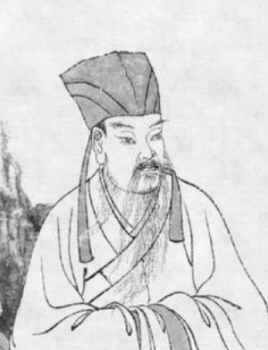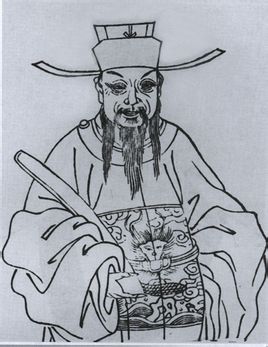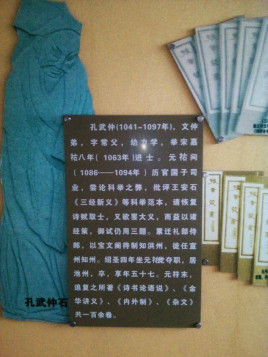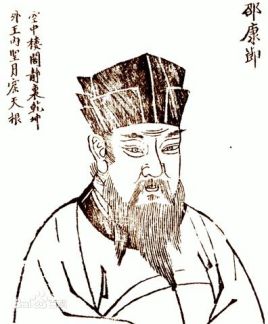西河金陵
西河金陵赏析
这首词主要是隐括刘禹锡的两首诗而成。其一,《石头城》:“山围故国周遭在,潮打空城寂寞回。淮水东边旧时月,夜深还过女墙来。”其二,《乌衣巷》:“朱雀桥边野草花,乌衣巷口夕阳斜。旧时王谢堂前燕,飞入寻常百姓家。”张炎《词源》说:“清真最长处,在善融化诗句,如自己出。”
这首词是怀古咏史之作。作者面对金陵“佳丽地”,目睹自然界的沧桑,因而引起人事兴衰的感触,抒发出自己的政治见解和哲理观念,表现了作者追念古昔和寄慨当今的思想情感。
全词共三叠。第一叠写金陵的山川形胜。首先点明金陵是一个“佳丽地”,接着以“南朝盛事谁记”一语总括历史兴亡之感。第二叠写雾夜在断崖边凭吊古迹,曾经系过莫愁佳丽的游艇之树,而今已倒倚,旧迹仍在,可人事已非了。第三叠写金陵触目荒凉之慨。从眼前景物中,不见“酒旗”,不闻“戏鼓”,只见寻常巷陌中的燕子对语,引起作者对金陵古都朝代更替的无限感慨。
这首词艺术技巧很高,它没有正面触及重大历史事件,而是通过景物描写作今昔对比,形象地抒发作者的沧桑之感,寓悲壮情怀于空旷境界之中,是怀古词中别具匠心的佳作之一。
西河金陵译文及注释
译文
南朝金陵兴盛的情景,而今谁还能记忆呢?江岸环绕着髻鬟似的山峰相对耸立。长江的大浪长年累月扑打这座孤独而寂寞的古城张着风帆的船正向遥远的天边驶去。临水的陡峭山崖上的树好像倒下来靠在崖上.莫愁姑娘或许曾在这里系过艇子吧!一切只剩下陈迹了,但只见郁郁苍苍一派青色,还有那浓雾中露出的半截城垒。夜半更深,月亮从女墙上升起来,而赏心亭东望著秦淮河.
那酒旗飘扬、锣鼓喧天的热闹景象究竟到休息去寻找呢?想来就是东晋时代王谢家族的府居所在。燕子不知道这是什么世代。燕子在夕阳里喃喃细语,好像也在相互诉说这里的盛衰兴亡吧。
注释
西河:唐教坊曲。
佳丽地:指江南。更指金陵 。用南朝奇谢眺《入城曲》诗句“江南佳丽地,金陵帝王州”。
南朝盛事:南朝宋、齐、染、陈四朝建都于金陵。
髻鬟对起:以女子髻鬟喻在长江边相对而屹立的山。
莫愁相传为金陵善歌之女。
女墙:城墙上的矮墙。
燕子不知何世:刘禹锡《乌衣巷》:“朱雀桥边野草花,乌衣巷口夕阳斜。旧时王谢堂前燕,飞入寻常百姓家。”
西河金陵英译
ZHOU Bangyan – Lyrics to the Melody of the West River (In remembrance of bygone eras at Jinling)
In this prosperous region, who remembers the South's grand eras?
Mountains and fields of the countryside and the winding Yangtze
Surround and build up away from the city.
Raging billows like loneliness towards a solitary castle heave,
On the distant horizon navigate sails and masts of ships.
Off the precipice rugged trees overhang still,
Who still comes here to secure the boat of a gent who never worried?
All that remains on a historic site is sentimentality.
And fog has come to one half of a castle conceal.
Deep in the night, over the parapet the moon shines,
In grief I look towards the east where pass the waters of River Huai.
What a flourishing city full of wine vendors' pennants and operatic drumming!
Faint is the memory of the Wangs, the Xies and their neighbourhoods,
Swallows have come and gone for generations that all have lost count of.
There are now ordinary people along the same streets and alleyways,
Telling tales of the rise and fall of former times in the setting sun.
 刘攽〔宋代〕
刘攽〔宋代〕
 卫泾〔宋代〕
卫泾〔宋代〕
 孔武仲〔宋代〕
孔武仲〔宋代〕
 王繁〔宋代〕
王繁〔宋代〕
 朱元升〔宋代〕
朱元升〔宋代〕